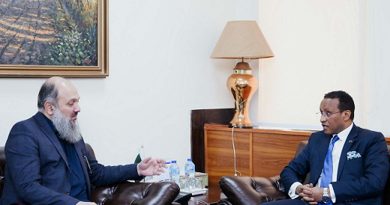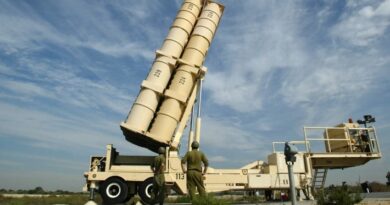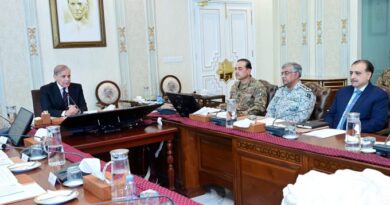US urges China to keep Iran from shutting Strait of Hormuz
Khamenei calls US intervention ‘extremely dangerous’ in first official reaction
WASHINGTON: US Secretary of State Marco Rubio has urged China to help deter Iran from shutting down the Strait of Hormuz, a crucial trade route, following American strikes on Iranian nuclear sites.
“I encourage the Chinese government in Beijing to call them about that because they heavily depend on the Strait of Hormuz for their oil,” Rubio said on Fox News.
“If they do that, it will be another terrible mistake. It’s economic suicide for them if they do it, and we retain options to deal with that,” Rubio added.
“But other countries should be looking at that as well, it would hurt other countries’ economies a lot worse than ours. It would be, I think, a massive escalation that would merit a response. Not just by us but from others,” he said.
Meanwhile, Iran has threatened bases used by the US military, with an advisor to Iran’s supreme leader Ayatollah Ali Khamenei saying they will be considered a “legitimate target for our armed forces.”
However, it remains to be seen whether the US strikes will push Tehran to de-escalate the conflict or to widen it further.
Khamenei calls US intervention ‘extremely dangerous’ in first official reaction
Iran’s Supreme Leader Ayatollah Seyyed Ali Khamenei has warned that Israel made a “big mistake” by attacking Iranian territory and vowed that it is now facing punishment, in his first public remarks since the United States joined Israel in launching strikes on Iranian nuclear sites.
Khamenei declared, “The Zionist enemy has made a grave miscalculation. It is being punished and will continue to be punished.” He warned that Washington’s direct military involvement in the conflict had dramatically raised the stakes. “American intervention in this war is extremely dangerous,” the Supreme Leader said, addressing a gathering in Tehran.
Khamenei’s comments come amid mounting tensions following a coordinated series of US airstrikes on key Iranian nuclear facilities over the weekend. The targeted sites included Iran’s nuclear installations in Isfahan, Natanz, and Fordow—facilities central to Tehran’s uranium enrichment programme.
The US has claimed the strikes were a necessary response to preempt Iran’s potential development of a nuclear weapon. Iran has vehemently denied any such intentions, insisting that its nuclear programme remains peaceful and under the supervision of the International Atomic Energy Agency (IAEA).
Earlier, Iran’s permanent representative to the United Nations, Amir Saeid Iravani, condemned the strikes as “blatant and unlawful aggression” and asserted that Iran reserves the right to respond under Article 51 of the UN Charter. The diplomat linked the US strikes to Israel’s earlier attacks on Iranian infrastructure, which reportedly resulted in hundreds of civilian casualties.
Russia, China, and Pakistan also denounced the attacks during an emergency session of the United Nations Security Council. Russian envoy Vasily Nebenzya said the US had “opened a Pandora’s box,” while Chinese Ambassador Fu Cong labelled the attacks a “dangerous violation of international law.” Pakistan’s UN envoy Iftikhar Ahmad also described the strikes as a “clear breach of Iranian sovereignty,” calling for an unconditional ceasefire.
The Iranian leadership has doubled down on its position that the country’s nuclear expertise, enriched uranium reserves, and political resolve remain intact. NNI



